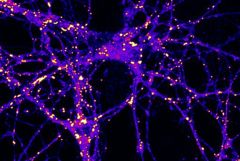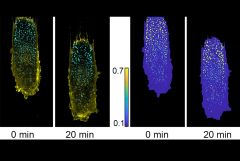Dopamine neurons in a part of the brain called the midbrain may, with aging, be increasingly susceptible to a vicious spiral of decline driven by fuel shortages, according to a study led by Weill Cornell Medicine investigators. The findings offer a potential explanation for the degeneration of this neuron population in Parkinson’s disease.
In the study, published Dec. 5 in the Proceedings of the National Academy of Sciences...











